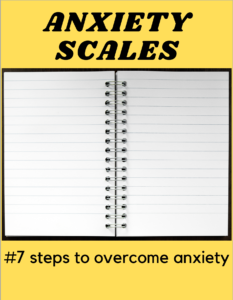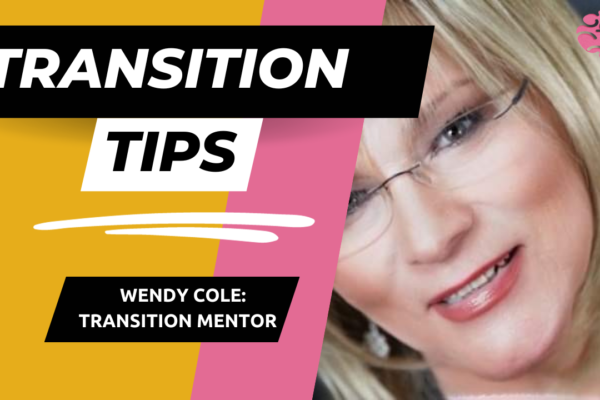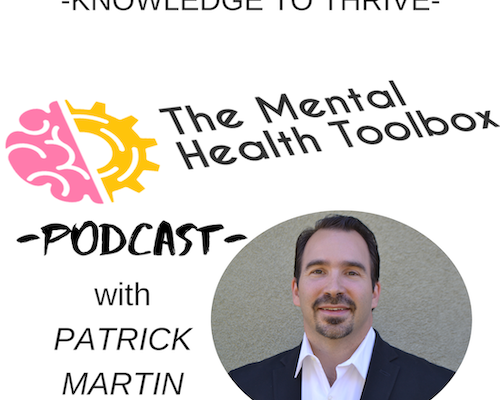Table of Contents
In this post, I discuss 7 Steps To Overcome Anxiety by targeting and challenging anxious thoughts through CBT techniques.
Are you struggling to make progress with your anxiety?
In this post, I will be sharing 7 steps to overcoming anxiety, so be sure to stick around until the end so you don’t miss any steps, because they build on each other.
My name is Patrick, and I am a psycho-therapist by trade.
I am on a mission to help consumers and clinicians accelerate their personal development, with actionable information I have learned in both my work as a therapist, and my personal journey in self-improvement.
Many of the concepts I am covering in this episode are derived from cognitive behavioral therapy, and a workbook I recommend “The Anxiety and Worry Workbook”, by Aaron T. Beck. You can find a link to this workbook in the description if you want to check it out.
You can find all of my recommended books and products by visiting www.MHTGEAR.COM
You can get a free PDF of a worksheet covering each of these steps by clicking on the image below!
Below are the seven steps I cover for learning to identify, track, label and challenge your anxious thoughts.
- Tracking Your Daily Anxiety This is the initial step, where you want to spend a week or two tracking your anxiety in response to daily triggers and scoring your anxiety on a scale of 0-100. The purpose with this activity is to identify the most distressing triggers, as well as the range of triggers for future habituation work. I discussed Habituation in a prior episode, you can find HERE.
- Noting Your Anxiety Stimuli: In this step, you practice identifying the correlation between triggers and coping responses. This is done by documenting events, thoughts, or somatic experiences that may have triggered an anxiety response. Concisely note the event in the second column, the intensity and duration in the third, and lastly, note your initial coping behavior in the fourth column.
- Tracking Your Anxious Thoughts: Identifying your distorted assumptions, sometimes referred to as thinking errors or harmful thinking habits. In this step, you document your anxious experiences in the first column, and note their intensity on the second column, negative ideations in the third, and note the imagined the worst-case scenario in the final column.
- Discovering Your Inaccurate Assumptions: In this step, practice familiarizing yourself with common harmful thinking habits, or inaccurate assumptions/interpretations/conclusions, and then start labeling them in real time using a tracking sheet. You will find that the same categories will show up repeatedly, depending on your personal cognitive struggles at the root of your anxiety. Start by spending some time reviewing the categories of cognitive distortions provided.
Common habits of unhealthy thinking are the things that we want to learn to label, so that we can catch them faster and then correct them, and the faster we catch them, the more we can mitigate the fallout of skewed assumptions derived from them.
As you learn to observe your thoughts, and label them, you will likely find that you gravitate toward distinct categories, and it is not uncommon for any one of us to have a particular pitfall we learn to guard against as we grow.
Categories: the most common categories of harmful thoughts are as follows:
- Catastrophizing: This is a telltale sign of anxiety. You know you are catastrophizing when you are fast-forwarding 100 steps ahead to the worst possible outcomes as if they are the most likely, which prevents you from dealing with things as they come and maintaining perspective and proceeding mindfully, considering all your options.
- All or Nothing Thinking: This is often referred to as “black and white” thinking. There is no grey. Things and relationships and people are labeled as all good, or all bad. Statements of the self are very concrete; “I am unlovable”- “I can’t talk about my feelings.”
- Negative Fortune Telling: This is similar to pessimism, but differs in that it is tantamount to a handicapped sense of pleasure predicting. With this thought process, it becomes very difficult to sustain any sense of motivation because everything seems pointless. This is often times what accompanies anhedonia, a common symptom of depression wherein the person loses interest in activities they used to enjoy.
- Pessimism: This is like assuming that the deck is stacked against you all the time, or that the dice of life are loaded. Practically, things are usually at least 50/50 in terms of their outcome. This is like seeing life through a 25/75 lens.
- Labeling Oneself: Just like it sounds, we label ourselves with derogatory absolutes, like “stupid”, “ugly”, “bad”…
- Negative Filtering: This is the act of minimizing positive feedback, but exaggerating any feedback that could be perceived as negative or critical. This often looks like being overly modest. This is especially dangerous because it creates social boundaries that others will respect by discontinuing to provide you with praise, which feeds back into depressive self-talk…”see, no one ever says anything nice to me.”
- Exaggerating: This is that old saying of “making mountains out of mole hills.” We either become paralyzed from addressing our problems because they seem bigger than life, or turn minor grievances into social warfare.
- Overgeneralization: This is the act of projecting an infinite number of negative outcomes from a single event, often reflecting a lack of belief in one’s capabilities. It is making the assumption that all situations will occur in like manner, and therefore discourage one from attempting something a second time if their initial experience was poor.
- “Should”ing: This is the act of feeling obligated to do something, or self-imposed guilt for not acting according to one’s own expectations, leaving them feeling resentful, oppositional, or disappointed.
- Blaming Oneself: Just like it sounds. The belief pattern that all unfortunate outcomes stem from your own actions. You are always at fault, regardless of the circumstances.
- Mind Reading: Assuming you know what others are thinking in relation to you and that it is a negative appraisal. This also referred to as “reflected appraisals” in psychology.
- Cognitive and Behavioral Coping List: In this step, the idea is to start practicing various coping skills in response to given events, and then rating them for their efficacy. Over time, this will allow you to identify the most effective coping skills in your toolbox and create a comprehensive list of options to serve various context. Behavioral coping skills might be things like talking a walk, a nap, deep breathing or exercise. Cognitive coping skills could be reframing, challenging self-talk, reality testing, mindfulness.
- Danger Assessment: In this step, the goal is to explore the perceived threat, the likelihood of that outcome, the intensity of your emotional response, how adequate you feel you are in your ability to manage the threat and lastly, to identify the positive (protective) factors that are being ignored in the wake of your anxiety.
- Collecting The facts: In this final step, we jot down the anxious thought, and then, like a detective, we aim to be as objective as possible in gathering evidence to support or challenge the anxious assumption. Then, after we have some data both for and against the thesis of our anxious thoughts, we will score the actual likelihood of that outcome, as well as the perceived impact on our quality of life. This final exercise allows to practice the skill of reality testing. With a lot practice, this process becomes quicker, and we can learn to catch our thoughts in real-time and learn to not take all of our thoughts at face value.
ASK: If you have a question you’d like me to answer here on the blog (even if you think it’s a silly one!), please use the form on the CONTACT ME page, or the comment section below. I would be happy to take a poke at it and provide a long form answer when appropriate.
SHARE: Also, be sure to share it with a friend, as there is still a lot of work to be done in raising mental health awareness.
SUBSCRIBE to get your FREE MOOD TRACKING TOOL and quick Mental Health Hacks in addition to this newsletter. Sign-up with the form below.
NEED CRISIS HELP? If you need immediate crisis help with your depression, you can call the National Suicide Prevention Lifeline at 1-800-273-8255 or text “START” to 741-741
OUTSIDE THE UNITED STATES: See International Suicide Hotlines
WHERE TO FIND MENTAL HEALTH HELP:
-NAMI Referral Helpline: 1-800-950-6264
-California’s Statewide Mental Health Helpline: 1-855-845-7415
The Mental Health Toolbox: Resources and Support for Therapists Seeking Growth & Impact.
Mission Statement: To equip therapists with the tools, knowledge, and strategies they need to enhance their practice, boost their income, and ultimately, improve the lives of their clients. We achieve this through accessible, high-quality content, practical resources, and a supportive community.
Want to learn more? Check out my top picks for books on self-improvement and recovery HERE!
admin
Latest posts by admin (see all)
- How to Build a Referral Engine Without the “Hustle”: - January 12, 2026
- ADHD Tips for Therapists | with Dr. Jennifer Dall - May 28, 2025
- Why Therapy Fails Men (And How to Fix It) – Insights with Marc Azoulay - May 11, 2025











